Symposium was organized by the Federal Reserve Bank of San Francisco and the Monetary Authority of Singapore
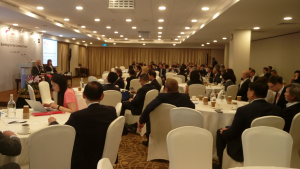 Singapore – ABA Deputy Secretary Mr. Amador Honrado Jr. represented the Asian Bankers Association (ABA) at the “Asia Symposium: Banking for the Common Good” jointly organized by the Federal Reserve Bank of San Francisco (FRBSF) and the Monetary Authority of Singapore (MAS) on June 3-4, 2019 at the MAS Building in Singapore.
Singapore – ABA Deputy Secretary Mr. Amador Honrado Jr. represented the Asian Bankers Association (ABA) at the “Asia Symposium: Banking for the Common Good” jointly organized by the Federal Reserve Bank of San Francisco (FRBSF) and the Monetary Authority of Singapore (MAS) on June 3-4, 2019 at the MAS Building in Singapore.
The Singapore event marked the twelve-year anniversary of the FRBSF’s “Symposium on Asian Banking and Finance,” which began in 2007 with a conference to consider the “lessons learned” from the 1997-98 Asian financial crisis. Since then, through the global crisis, FRBSF has continued annually to examine key global developments in banking and finance with the objective of bringing Asian voices to the discussion. The Symposium is an invitation-only discussion among industry and policy leaders. This year’s gathering brought together some 110 participants including central bankers and regulators, senior officers of financial institutions, market participants, and academics.
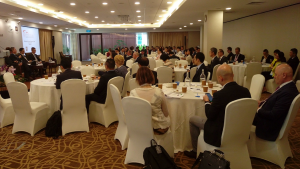 The theme of the 2019 Symposium reflected the impact of banking services on the function and wellbeing of society. Discussions covered regulatory reform, financial inclusion, sustainable financing, technological advancements, and cyber resiliency. The participants agreed that as regulatory and operating environments evolve, banks and other financial firms would need to reassess and realign their missions and business models to serve their social purposes, such as sustainable financing, diversity, and supporting the real economy. They pointed out that with the growing spotlight on financial technology, one key issue to address is how banks can harness technology for deeper and wider financial inclusion while managing cybersecurity risk, unconscious bias and other unintended consequences.
The theme of the 2019 Symposium reflected the impact of banking services on the function and wellbeing of society. Discussions covered regulatory reform, financial inclusion, sustainable financing, technological advancements, and cyber resiliency. The participants agreed that as regulatory and operating environments evolve, banks and other financial firms would need to reassess and realign their missions and business models to serve their social purposes, such as sustainable financing, diversity, and supporting the real economy. They pointed out that with the growing spotlight on financial technology, one key issue to address is how banks can harness technology for deeper and wider financial inclusion while managing cybersecurity risk, unconscious bias and other unintended consequences.
Opening Remarks by MAS Managing Director
Mr. Ravi Menon, Managing Director of MAS, delivered the Opening Remarks. In his speech, Mr. Menon noted the following: It is transparency, not disclosure alone, that defines proper fair dealing from financial institutions, noting as well the “uneven” culture and conduct practices in the financial industry in Singapore. Mr. Menon said financial institutions must make the information they provide to customers more transparent. “Disclosure alone is not enough. Ask any consumer of financial products having to go through hundreds of pages of product disclosure written in unintelligible legalese,” he said.
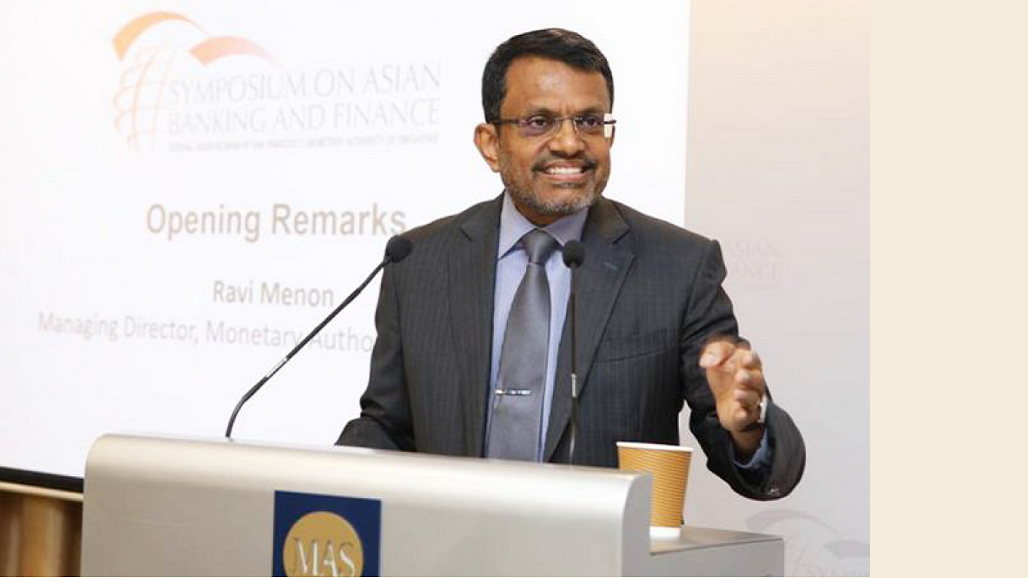
With that, financial institutions must make the information they provide more transparent in at least three areas: the risk, especially the circumstances under which the customer could lose all or most of his money; the assumptions underlying return projections or estimates; and the fees, charges, and commissions. The board and senior management of financial institutions are responsible for setting a clear strategy in fair dealing, he added.
Against this backdrop, Mr. Menon said MAS has conducted a stocktake of culture and conduct practices across selected financial institutions, through which supervisors had extensive one-on-one conversations with not just the management of these financial institutions but staff across the ranks. In doing so, MAS tried to develop a keener sense of whether “the organizational values plastered on the walls of the board room were practiced on the ground”, he said. “What have we found? Culture and conduct practices are uneven in the industry. Many financial institutions still struggle to articulate the conduct risks they face,” Mr. Menon said.
He added that many financial institutions are “only starting” to develop tools and indicators to get a fuller, cross-functional view of the culture within their organization. MAS has set up a steering group with the banks to identify emerging trends in conduct and behavior as well as share best practices in “getting the culture right”. The regulator has also set up a small behavioral sciences unit to help supervisors with methodologies to get a better understanding of culture and conduct issues in the institutions they supervise, he said.
In Singapore, prospective financial advisory representatives will also in time be tested on their understanding of ethical principles, going beyond just product knowledge and skills to engage their customers to understand their financial needs and risk profiles, said Mr. Menon. He pointed out that: “We have come a long way. Today, it is less likely that 1MDB-type methods of laundering would go undetected in our banks.” But he warned that methods used by money launderers are becoming more sophisticated. “Financial institutions must remain alert to emerging risks and typologies. Eternal vigilance is the price we must pay to keep our financial system clean…. There is no room for complacency.
Keynote Address by FRBSF President and CEO
The keynote Address was delivered by Ms. Mary C. Daly, President and CEO of the Federal Reserve Bank of San Francisco (FRBSF). Excerpts from her address follows:
“Being more customer-focused… using finance to create inclusive growth… understanding the role that organizational culture plays in all of it… these are hot topics for both the financial services industry and regulatory institutions. And progress has been made. Yet consumers remain wary — even a little skeptical — of financial firms. Banks are still repairing the breach of trust caused by the global financial crisis. Repeated scandals showed that banks weren’t always good actors. Poor corporate culture and profit-first practices created significant consequences for consumers. People lost homes, retirement savings, college funds… a sense of security. It left deep scars.
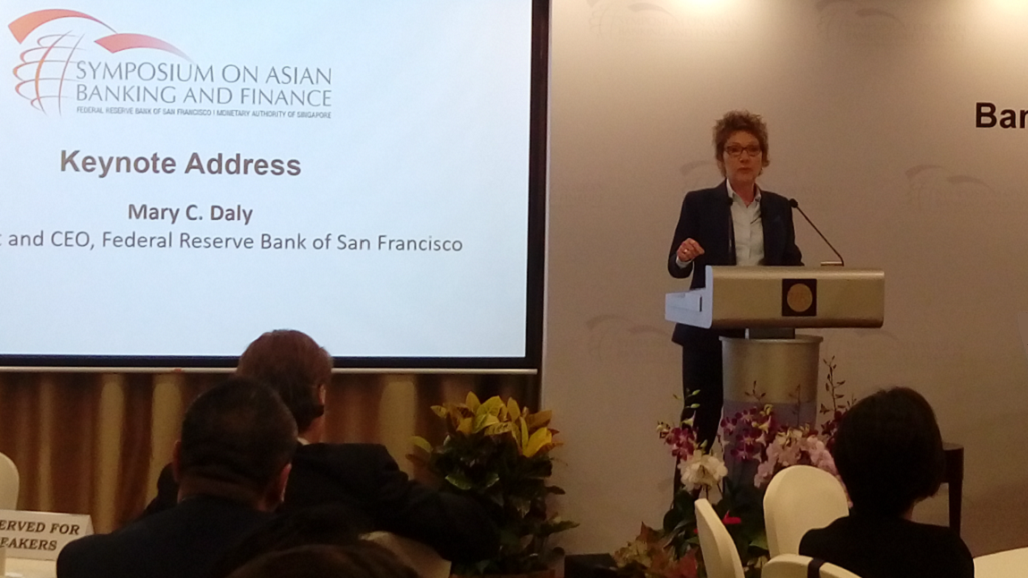
Since then, much needed regulations have improved the resiliency of the financial system, making future crises less likely. This has helped boost confidence in the industry. But the world didn’t stand still while banks worked to recover their credibility with the public. Technology-based competitors emerged with customer-centric approaches to finance.
They offered targeted products, tailor-made to serve the needs of a diverse customer base. They worked to keep costs low, and efficiency and convenience high. Notably, these firms also talked about the broader good, and how their business models help promote a better future. Putting these things together, traditional financial institutions are facing some pretty strong headwinds. And they’re headwinds that can’t be addressed through regulatory guardrails alone.
So what can be done? Here’s my view: banks — large and small — need to become owners. Owners who are committed to — and accountable for — doing right by their customers and their communities.
The first step in becoming an owner is defining your values. What do you believe in? How will you go about achieving your mission and vision? At the Federal Reserve, we’re tasked with a dual mandate — promoting full employment and price stability. We also support safe and sound banking and payment systems. That’s our mission. At the San Francisco Fed, we want to be the best in public service. That’s our vision. Our values are something different — but equally important. They’re spelled out on a banner that greets every person who walks into our lobby each day. It says: “Our work touches every American and countless global citizens.” That’s our core value — service. Service to the people and the communities we represent. That’s the reason we show up to work every day. That’s our touchstone.
Defining your values is essential. But it’s only the beginning of building a culture of ownership. To give values life, and make them real for every individual you work with, you have to take action. And those actions have to be rooted in trust — the trust that your people will act in the interest of others and the organization.
So once you’ve defined your values, and built an environment of trust, how do you keep growing? How do you stay agile? There are two essential ingredients for success: diversity of thought, and inclusion of ideas. I mean true diversity, where you encourage new ideas and differences of opinion, and include them equally in the discussion. Put simply: listening to a wide variety of viewpoints produces better outcomes. It ensures you’re considering all angles. And it makes you aware of issues and problems that aren’t even on your radar.
We’re at that moment now for the financial services industry. If you’re willing to become an owner… if you’re willing to put your customers and communities at the center of your business… banking for the common good will move beyond the title of this conference, and become the new industry norm.
Summary of Symposium Sessions
A. Dialogue on Risks and Regulatory Reforms
The panelists had a forward-looking conversation on key emerging risks, the need to expand the current set of reforms and increase international collaboration as risks become more cross-border in nature.
The invited panelists included: Molly Mahar, Associate Director, Policy Planning, Federal Reserve Board; Dietrich Domanski, Secretary General, Financial Stability Board; Loo Siew Yee, Assistant Managing Director, Policy, Payments & Financial Crime, Monetary Authority of Singapore; and Chng Sok Hui, Chief Financial Officer, DBS Bank
B. Session on “Our Stories: Responsible Banking”
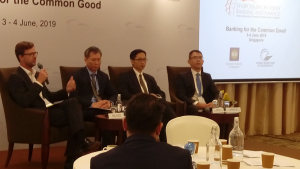 The session started off with an introduction to the financial inclusion/sustainable financing themes through a video. This was followed by a sharing of experiences by two speakers in their pursuit of improving financial inclusion (particularly on empowering women through financial inclusion) and sustainable financing.
The session started off with an introduction to the financial inclusion/sustainable financing themes through a video. This was followed by a sharing of experiences by two speakers in their pursuit of improving financial inclusion (particularly on empowering women through financial inclusion) and sustainable financing.
The speakers included: Heidi Toribio, Managing Director and Global Head, Banks & Broker Dealers, Standard Chartered Singapore, who spoke on her organization’s programs aimed at empowering women through financial inclusion; and Michael Sheren, Senior Adviser, Bank of England, who spoke on Sustainable Financing
C. Panel Discussion on Payment Services for the Common Good
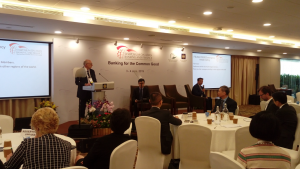 The session featured panelists who shared their perspectives on issues such as: (a) How have technological developments increased the efficiency in payment services and improved financial inclusion; (b) What role do the government and private sector play in ensuring financial inclusion through access to payment and remittance facilities; (c) How has the emergence of new players impacted the financial landscape? Have they been disruptive, or have incumbent banks adapted well to capitalize on these developments through, for example, collaboration? (d) Are the disruptions, on balance, good for the average person; (e) What trade-offs, if any, did the industry have to make in the process of the disruptions; and (f) How have regulators reacted to the developments in the payments landscape? Are they doing enough to manage emerging risks?
The session featured panelists who shared their perspectives on issues such as: (a) How have technological developments increased the efficiency in payment services and improved financial inclusion; (b) What role do the government and private sector play in ensuring financial inclusion through access to payment and remittance facilities; (c) How has the emergence of new players impacted the financial landscape? Have they been disruptive, or have incumbent banks adapted well to capitalize on these developments through, for example, collaboration? (d) Are the disruptions, on balance, good for the average person; (e) What trade-offs, if any, did the industry have to make in the process of the disruptions; and (f) How have regulators reacted to the developments in the payments landscape? Are they doing enough to manage emerging risks?
Invited as panelists were: Isaku Endo, Senior Financial Sector Specialist, The World Bank; Vicente de Villa, Senior Director and Officer-in-charge, Financial Technology Sub-Sector, Bangko Sentral ng Pilipinas; Joep Roest, Senior Financial Sector Specialist, The Consultative Group to Assist the Poor (CGAP); Sagar Sarbhai, Head of Regulatory Relations for APAC, Ripple; and Pranav Seth, Head of E-Business, Business Transformation and FinTech and Innovation Group, OCBC Bank
D. Panel Discussion on Lending and Financing for the Common Good
Invited panelists exchanged views on questions such as: (a) How have technological developments improved financial inclusion in terms of access to credit and loans? (b) What role do the government and private sector play in ensuring financial inclusion through access to credit and loans? (c) How has the emergence of alternative lenders/lending models impacted the financial landscape? Have they been disruptive, or have incumbent banks adapted well to capitalize on these developments through, for instance, collaborations; (d) Are the disruptions, on balance, good for the average person?; (e) What trade-offs, if any, did the industry have to make in the process of the disruptions; and (f) How have regulators reacted to the developments in the payments landscape? Are they doing enough to manage emerging risks?
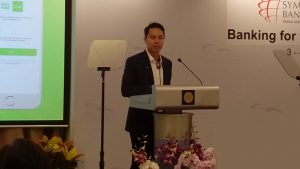 The panelists included: Eddie Lee, Group CEO, SeedIn Technology / Vice President and Chair, Market Lending, FinTech Association of Singapore; Janet Young, Managing Director and Head, Group Channels & Digitalisation, United Overseas Bank; John Lee, CEO, Maybank Singapore; H.E. Chea Serey, Assistant Governor and Director-General of Central Banking, National Bank of Cambodia; and Anthony Thomas, CEO, Mynt.
The panelists included: Eddie Lee, Group CEO, SeedIn Technology / Vice President and Chair, Market Lending, FinTech Association of Singapore; Janet Young, Managing Director and Head, Group Channels & Digitalisation, United Overseas Bank; John Lee, CEO, Maybank Singapore; H.E. Chea Serey, Assistant Governor and Director-General of Central Banking, National Bank of Cambodia; and Anthony Thomas, CEO, Mynt.
E. Keynote on Impact of Tech Advancements on Financial Landscape
Reuben Lai, Senior Managing Director and Co-Head, Grab Financial Group, made a presentation on the expanding services of the organization from not only providing transportation services but also providing financial services designed for the underserved and unbanked segment of the community, particularly located in remote areas.
F. Activity on Cyber: “War Game”
The session featured a simulated, table-top cyber “war game” that enabled the participants – segregated into various various sub-groups composed of commercial banks each and sub-groups of composed of regulators each – to discuss among themselves the appropriate steps to take in the event of a cyber attack. Charles Bretz, Director of Payment Risk, FS-ISAC joined the game.
G. Panel Discussion on Strengthening Cyber Resilience
The session featured invited panelists who addressed issues such as: (a) How can we monitor and safeguard against contagion risk posed by cyberattacks; (b) How can regulators help financial institutions prepare their responses in the aftermath of a cyberattack (in terms of BCPs, neutralizing the threat, follow-up investigations, maintaining investor/market confidence)? and (c) How can we strengthen the human element in cyber security.
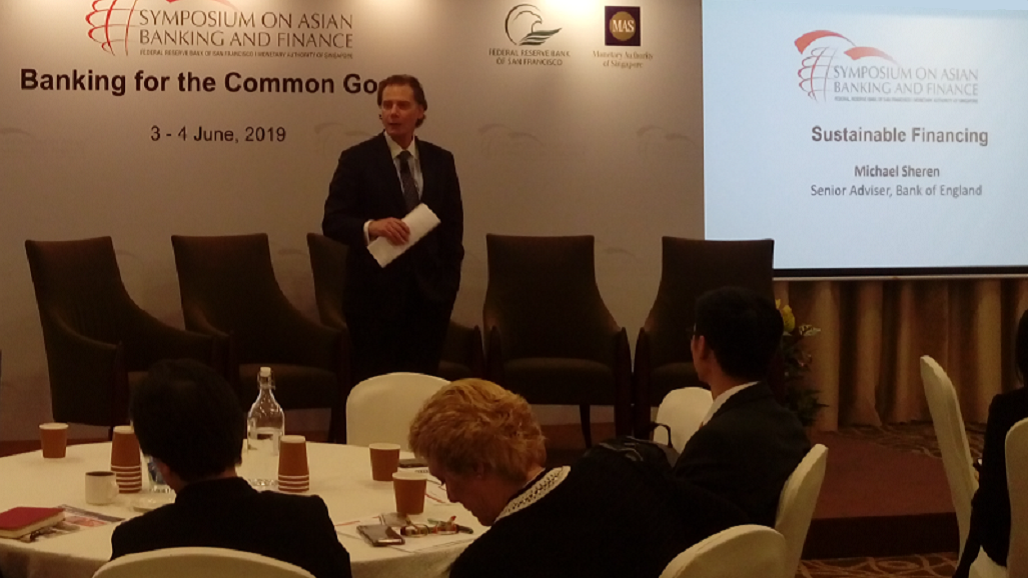
Invited as panelists were Wolf Richter, Partner, McKinsey & Company; Tan Yeow Seng, Chief Cybersecurity Officer and Executive Director, Technology & Cyber Risk Supervision, Monetary Authority of Singapore; Brian Lee, Head of Operational and Technology Risk, Hong Kong Monetary Authority; Gregory Sim, Executive Director and Head of Cyber Partnerships & Government Strategy (APAC), Standard Chartered Singapore; and Sunil Seshadri, Senior Vice President and Chief Information Security Officer, Visa Inc.
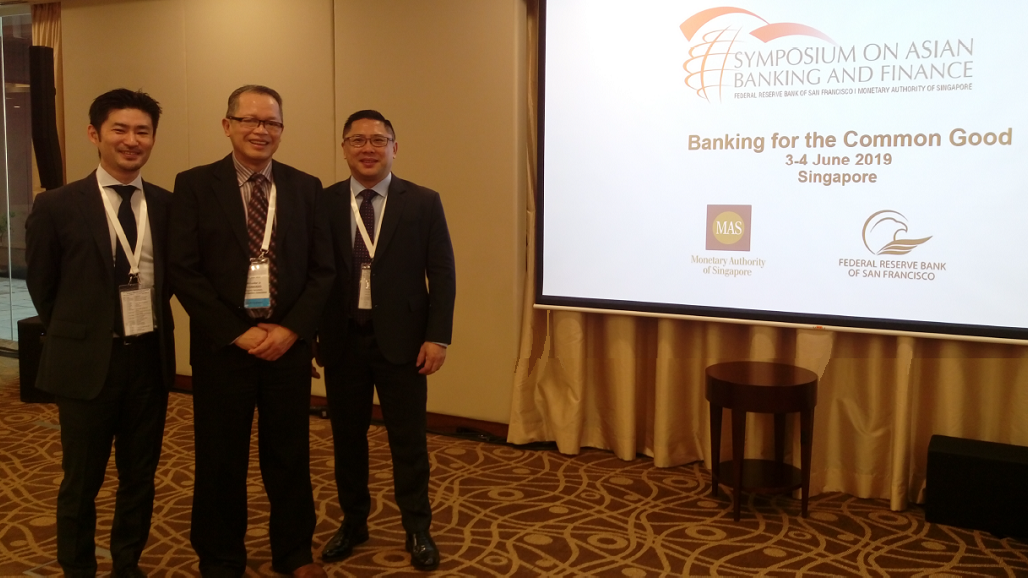
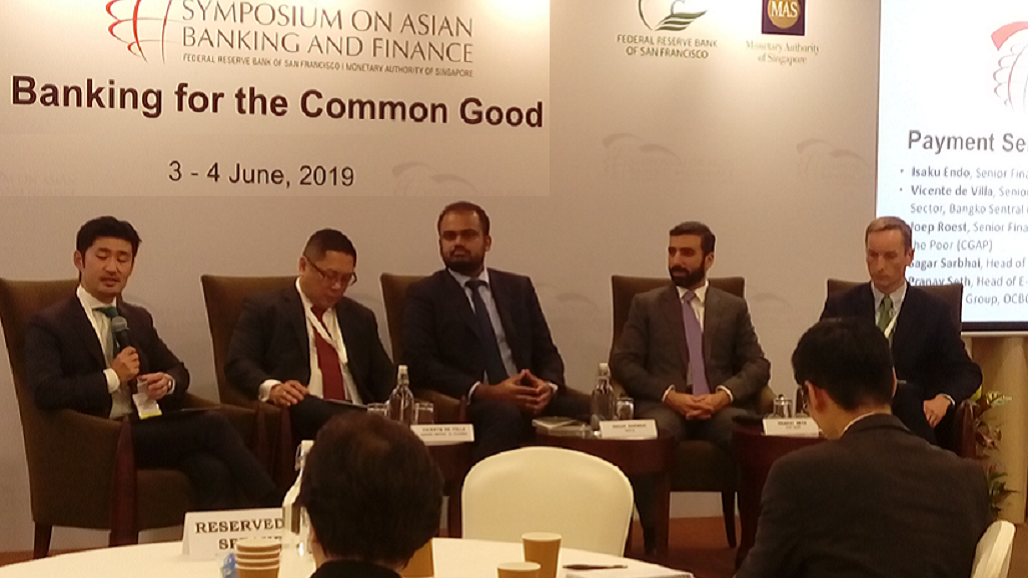

Leave a Reply